Advertisement
What If Warhol And Capote Created A Broadway Play? Turns Out They Did, Sort Of
Resume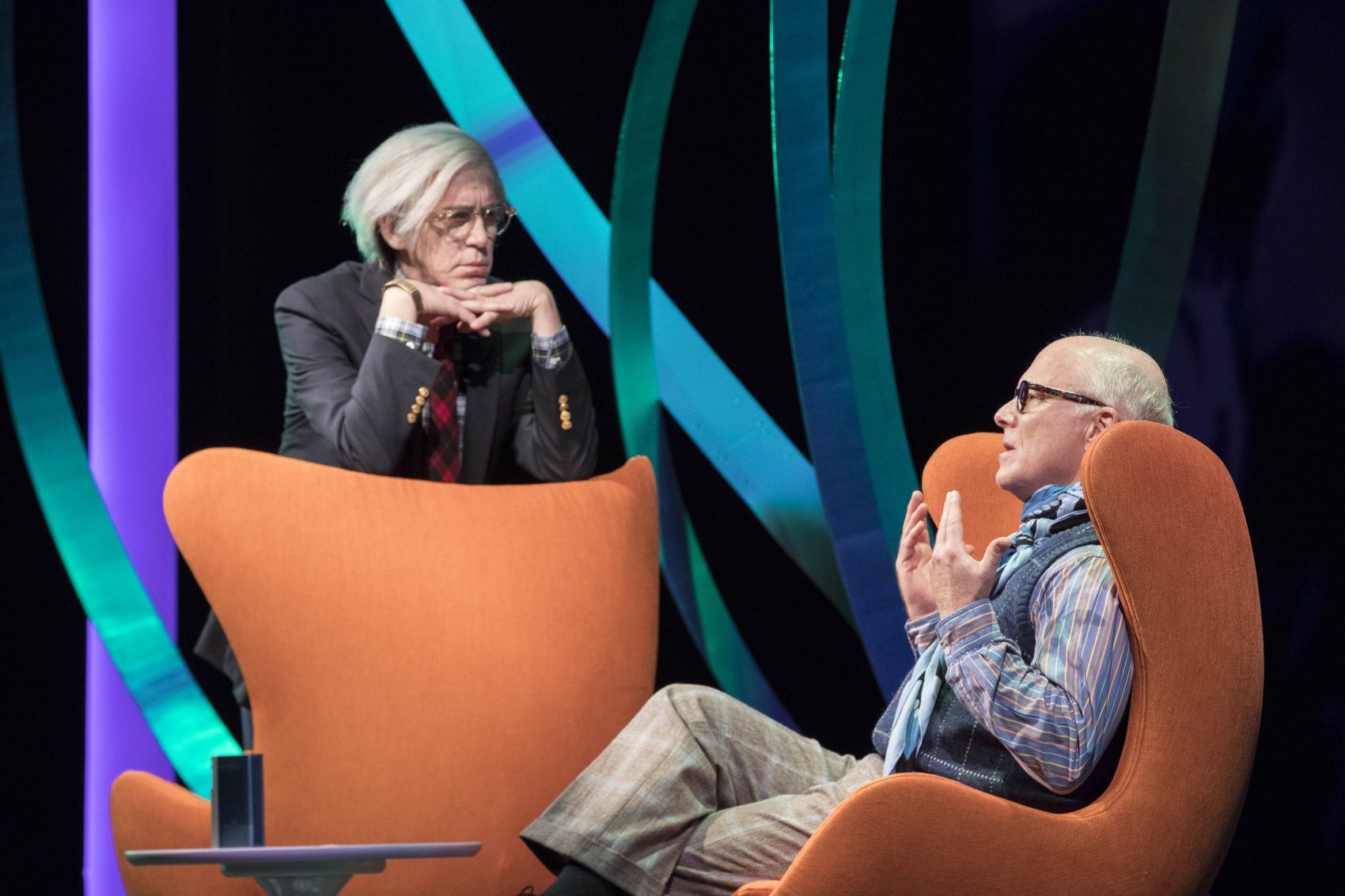
It’s fun to imagine the kind of Broadway play two eccentric giants of American art and literature might conjure up. A lot of people are surprised to learn Andy Warhol and Truman Capote even attempted it. Or that they were close friends. But they did. And they were.
Now first-time playwright and superfan Rob Roth is taking on their unfinished dream in the world premiere of “WARHOLCAPOTE.” It’s composed of real conversations between the two celebrities that Warhol recorded in the 1970s.

But getting this “reinvention” of their play from cassette to page, and eventually to the stage at the American Repertory Theater in Cambridge, has not been an easy journey.
Roth vividly remembers the moment in his childhood when he discovered a copy of Capote's groundbreaking nonfiction crime narrative, “In Cold Blood,” on his parents’ bookshelf.
“Literally didn’t know what it was, just picked it up,” said Roth, now 48, during a break from rehearsal. “And, you know, it’s one of the greatest books ever written. The story is so crazy — about the murder of a family — and it really appealed to my little 12-year-old brain.”
Seeing Warhol’s “Gold Marilyn Monroe” at the Museum of Modern Art in New York made an equally indelible impression on Roth. Then, in the 1980s, he caught the eccentric artist’s cameo, with entourage, on that high-water mark of TV kitsch, “The Love Boat.”
“Once you see Andy Warhol — he's so odd looking and had these one-word ‘Gee,’ and ‘Oh’ and ‘God’ on ‘Love Boat’ — so I kind of got obsessed,” Roth recalled.
Warhol had his own obsession. For years he recorded everything in his life — ordinary conversations, dinner parties, chats on the phone, even the cost of his cab rides — on his Sony Walkman.
“He called it his wife,” Roth said, “and when he died there were about 3,000 audio tapes.”
Roth said he didn’t know the tapes even existed until about 10 years ago, when he reread “The Andy Warhol Diaries,” for the 20th time. That’s when he spotted the entry where Warhol wrote about the tapes.
Roth paraphrased the passage for me: “I pulled out those tapes I made with Truman when we were working on the Broadway play, and they're awful. I talked on them so much I ruined them; I should've just shut up.”
Roth was floored — and intrigued. He remembers thinking, “Wait a minute. Andy Warhol talked too much on these tapes? I’ve gotta go try to find them.”
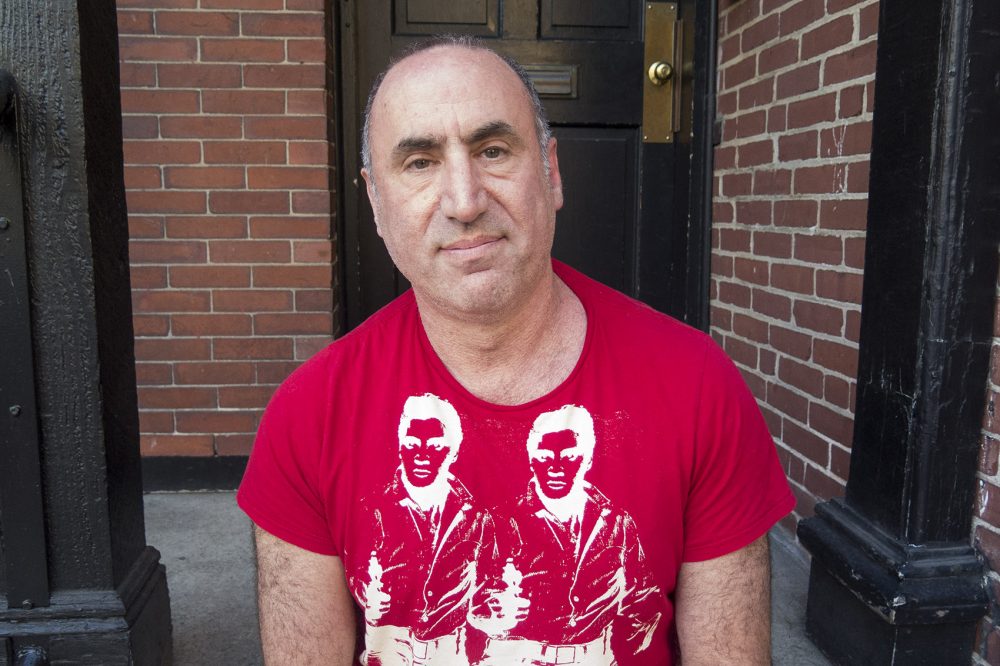
He reached out to people who knew and worked with the artist and the writer, and eventually he traced the trove of recordings to the Andy Warhol Museum in Pittsburgh.
But the cassettes weren’t cataloged, and they were off limits because of a policy, created after the artist’s death in 1987, stipulating they should not be made public until at least 2037. That didn’t stop Roth from asking for access through Michael Hermann, the Andy Warhol Foundation's licensing director.
“What he wanted was to be able to write his play,” Hermann recalled from the foundation’s offices in New York, “and because of this policy the answer was no.”
“I was pretty disappointed,” Roth remembered.
Risky Gossip
The foundation’s longstanding rule was intended to reduce the risk of lawsuits, because Warhol’s tape collection contains some juicy gossip about famous people including Liza Minnelli, Jackie Kennedy Onassis and Humphrey Bogart — to name just a few.
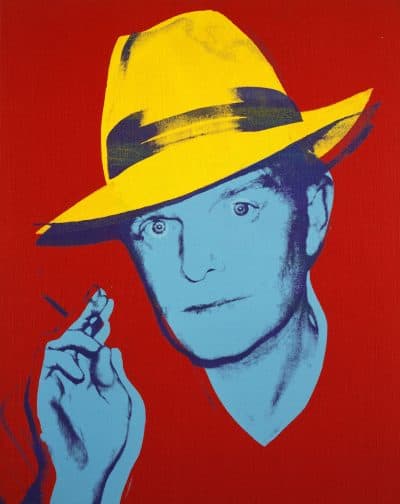
Hermann is one of a handful of people who’ve actually heard parts of recordings. Even so, he said he had no idea about Warhol and Capote’s grand scheme to create a Broadway play — until Roth came along and wouldn't take no for an answer.
“He really just kept a positive attitude and really tried to work with us,” Hermann said.
Roth said thoughts of Warhol and Capote kept him forging forward.
“They wanted to have a Broadway play. I wanted to do that for them," he said. "And I wanted to show who I think they really were in their own words.”
And his persistence paid off.
“Given his sincerity and the uniqueness of the project," Hermann said, "we decided to make this one-time exception.”
In return, Roth agreed to pay for the tapes to be digitized and transcribed by bonded court reporters. He also indemnified the foundation against any lawsuits over those juicy bits and will give the organization a share of the profits. And he struck a similar agreement with Capote’s estate. He could afford to, thanks to his career as a successful Broadway and rock-concert director. Still, he admitted, “I signed my life away. My lawyer said, 'Oh do it. You know, it's like a treasure hunt.' ”
In all, Roth listened to more than 80 hours of conversation between Warhol and Capote. He poured over 8,000 transcript pages, too, until he found the Easter egg he was looking for: that moment, at the legendary New York disco Studio 54, when the two artists started talking about their ideal play.
Warhol proposed they do eight Broadway plays — all running at the same time. During our interview, Roth paraphrased what followed after Capote asked Warhol what their piece of theater should be about.
“Well, Truman, can't I just tape you — the real thing — and can't the tapes be about real people?” Roth recounted. “And Truman says, 'That's exactly what we should do. The edited tapes will be both real and imagined. And there'll be no clear demarcation between what's real and what's fiction.' ”
With that, Roth mused, Warhol and Capote gave him the instructions for his version of their play. “So that's what I did."
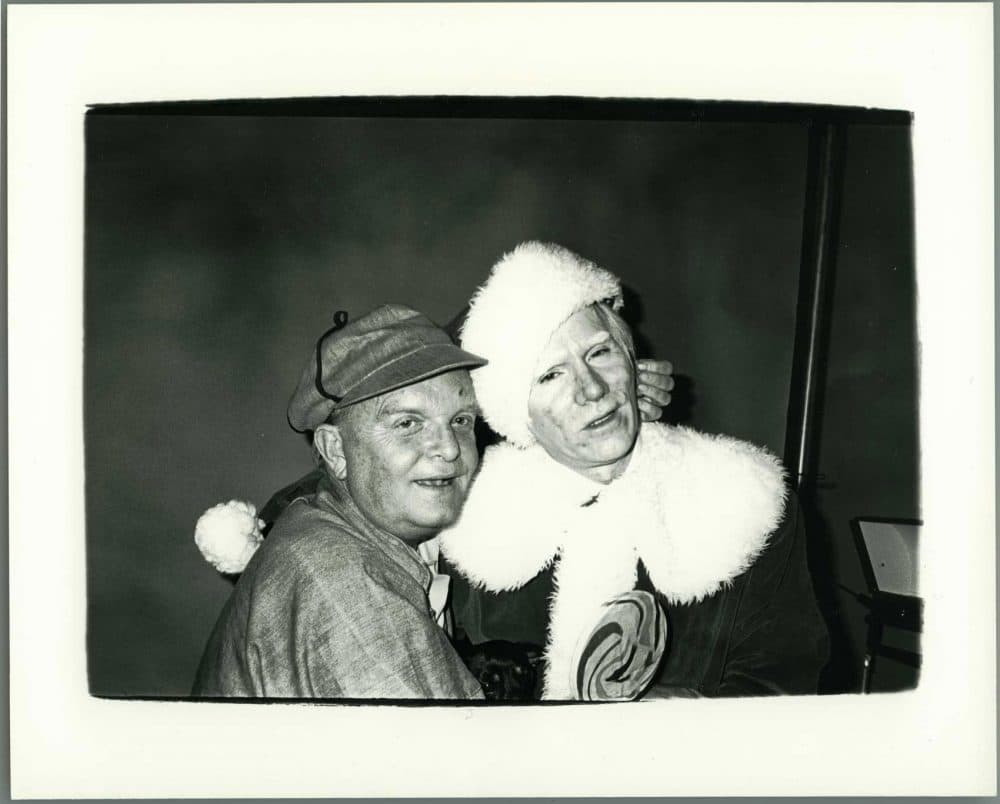
Every word in “WARHOLCAPOTE” was said by Capote and Warhol. In many ways what Roth has done is something very similar to what Warhol and Capote did. They each took real things — whether a picture of Marilyn Monroe or the murder of a real family in Holcomb, Kansas — and filtered them through their own imaginations.
'A Nonfiction Invention'
“He's taken what's there and he's constructed it in a way that it turns it into a portrait of these two men,” said Stephen Spinella, who plays Warhol in the A.R.T. production. It’s been difficult, he said, to get the quirky artist’s unique way of speaking just right.
“And now I actually have a little bit of trouble not talking like Andy," Spinella said, laughing. “When I call my husband, I have to stop myself, because it's weird.”
He caught himself, then repeated the phrase. “'It’s weird' — that was Andy.”
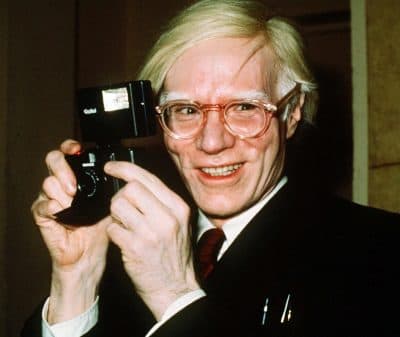
Like Warhol, Capote had a distinct voice. Actor Leslie Jordan shared his opening line when I interviewed him.
“Andy Warhol had this obsession about me,” Jordan said, as Capote. “He was very tight-jawed, and he just had that little baby voice.”
The story of Warhol and Capote’s relationship is as unusual as they were. Early on, the pop artist basically stalked Capote. He was an adoring fan who admired the writer’s command of words. In the '50s Warhol sent letters to Capote every day. He moved on to hanging around outside his idol’s house. The writer saw him as a pest and a nobody. In time, though, they became friends.
“Everybody knew Andy in New York — everybody knew or wanted to know Andy,” Jordan said. “But Truman knew him longer.”
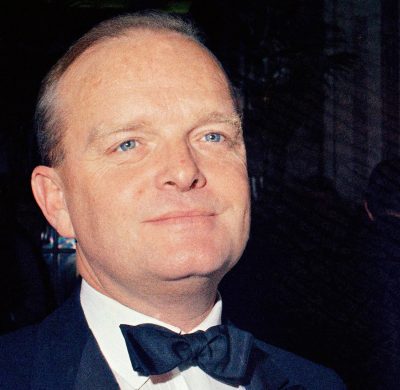
Both actors said they’ve learned a lot about Warhol and Capote, including the bigotry the two men, both gay, faced on their paths to stardom.
Echoing a line from Warhol in the play, Roth said, “Life hurt these two people very much. They were sadder than I thought they'd be. And troubled. You know, life wasn't easy for either of them, really. And I think that they had both hoped that fame was going to fix it. And it didn't. I think it made them more isolated.”
Warhol’s tape recorder is like a third character in the play, eavesdropping on their intimate banter — but also capturing Warhol’s fears of intimacy and Capote’s alcoholism. Jordan said playing the part of Capote at the A.R.T. has been the role of a lifetime.
“So many of the shows there have gone on to Broadway,” the 62-year-old actor said, “which would be my debut.”
But in one more plot twist along this play’s 10-year journey, Jordan withdrew from the production just three days before the first preview. In a statement, the theater cited “unforeseen personal circumstances.” Roth and the creative team found Dan Butler as a replacement.
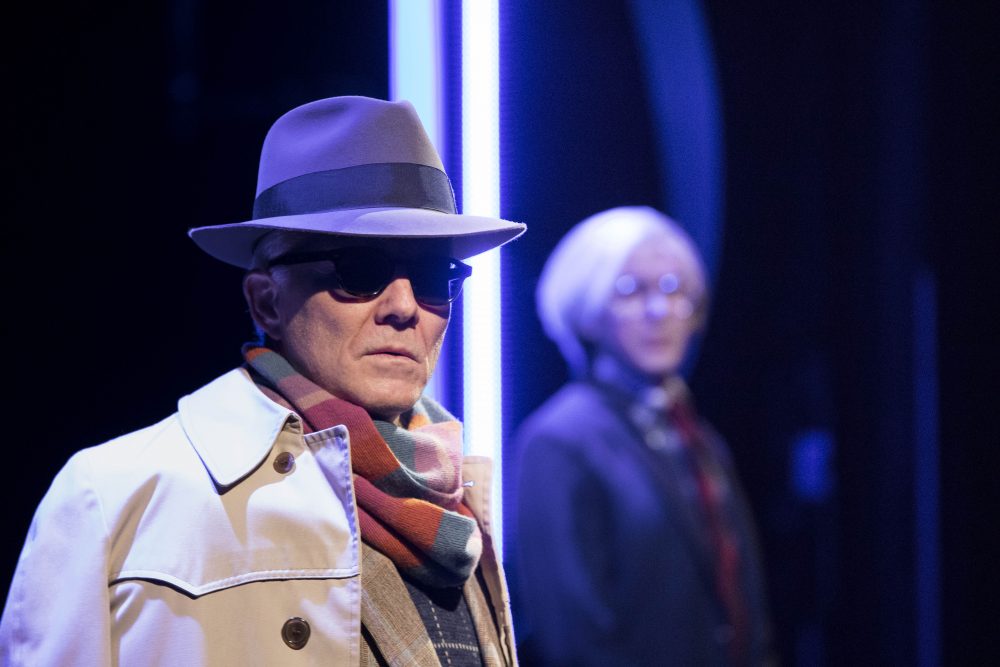
At the first preview performance, director Michael Mayer spoke to the audience and acknowledged the last-minute change. Onstage, Butler carried his script in a reality-meets-art moment Capote and Warhol likely would have appreciated. The dialogue he and Spinella uttered is the closest most of us will ever get to hearing those off-limits cassettes ourselves.
American Repertory Theater's "WARHOLCAPOTE" is at the Loeb Drama Center through Oct. 13.
This segment aired on September 14, 2017.

